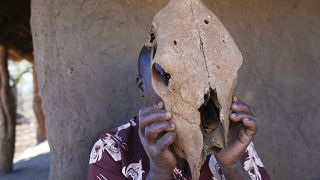wild life
The international wildlife and conservation charity Born Free has warned that hippo numbers in Africa are continuing to decline as legislation, partly due to the tightening of the illegal ivory trade.
The giant teeth of hippos which, like the tusks of warthogs, are also classified as ivory, have become much cheaper and easier to obtain than ivory from elephants. And they're increasingly used in decorative carvings just like other ivory.
In its report "A Tooth for a Tooth?" the charity warns that the success of the hippo ivory trade is worrying for a species that's already listed as "vulnerable to extinction".
The report states that this pattern was evident as far back as 1989 when the worldwide ban on the trade in ivory was first agreed upon.
The introduction of the Ivory Act in the UK in June 2022 placed the country at the forefront of elephant conservation efforts, with one of the toughest domestic bans on ivory in the world. But crucially, the charity said, it failed to include hippo ivory.
The lead author of the report Frankie Osuch said there was an "increase in the hippo ivory trade in the UK within a month after the near total ban of elephant ivory was introduced."
The charity tracked websites such as Barnebys, a popular auctioneer and antique dealer search engine; eBay UK and specialist online marketplace, Antiques Atlas for sales of ivory.
Africa, Tanzania, Uganda, Zambia and Zimbabwe were the source of three-quarters of the estimated 13,900 hippos whose parts and products were traded between 2009 and 2018, Born Free states.
There's also been a sharp decline in hippo populations in ten countries in West and Central Africa due to both poaching and land degradation.











01:16
Africa mourns Pope Francis, a voice for peace and justice
01:14
ECOWAS Meets in Ghana to Tackle Member Withdrawals
Go to video
EU foreign ministers discuss Ukraine, Syria and EU-African relations in Luxembourg.
01:58
Latin American leaders urge unity amid U.S. trade and migration tensions
Go to video
Paris hosts the 4th edition of African Cinema Days featuring Côte d'Ivoire
Go to video
A British woman gives birth after UK’s first womb transplant